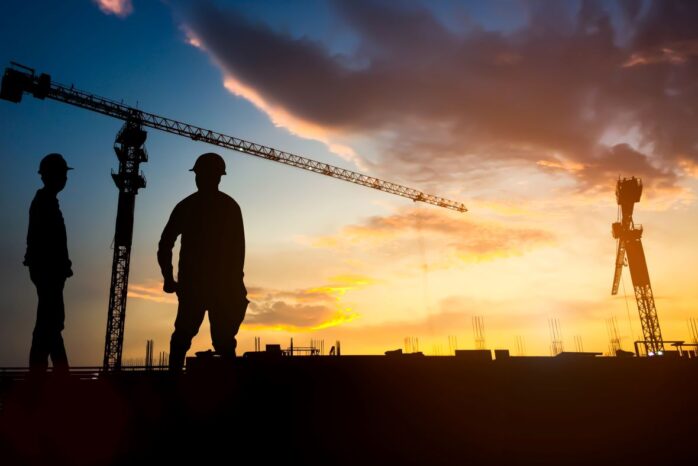
Nighttime construction is any kind of construction work that’s conducted after the sun goes down. Although this offers considerable advantages to construction crews, there are also significant challenges they expect to experience. You need to understand each if you’re going to make an informed decision about whether it’s right for your project.
So, what do you need to know?
In this article, we’ll explain the pros and cons of nighttime road construction.
Pros
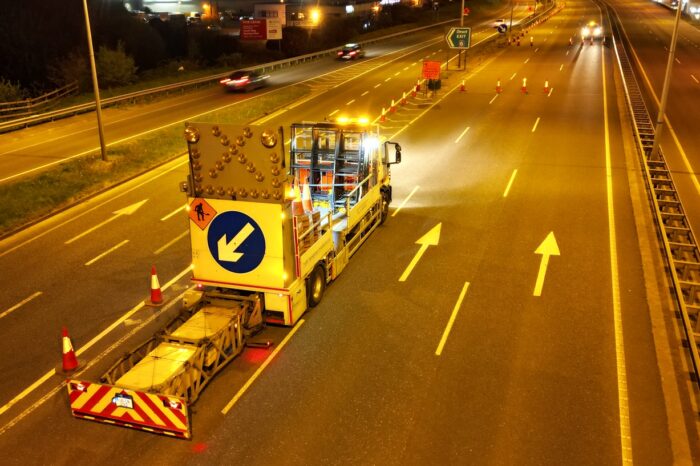
• Minimal traffic
Conducting road construction projects during the nighttime minimises disruption to traffic. Fewer vehicles are on the road on the nighttime, so road closures have less impact on traffic. And more lanes can remain open during daytime hours. Nighttime work also increase safety for workers because there’s a lower risk of traffic incidents.
• Cooler temperatures
Nighttime construction work gives the advantage of cooler temperatures. Employees conducting construction work on hot summer days poses health risks like heat stroke or fainting. Doing work at night instead allows the same work to get done without unnecessary health risks.
• Simpler site preparation
Construction work requires considerable preparation, with heavy equipment and machinery needing to be transported to building sites ahead of work starting and crew needing to set up necessary support systems. This preparation is considerably easier at nighttime, thanks to limited traffic and public presence around the site.
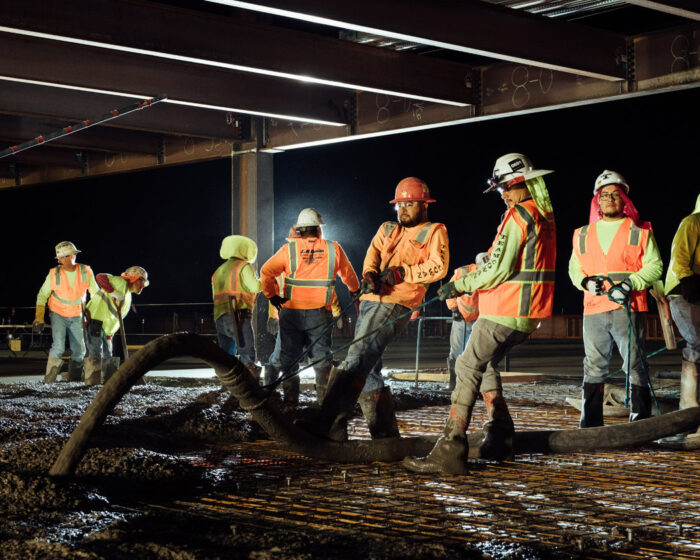
• Time to Complete The Work
When it comes to any working operation one could say that there’s a massive difference between night and day. That’s true for forking at night for so many reasons. For one, during the day there are too many distractions. During the night you will encounter reduced traffic, no pedestrians at all, and a lower frequency of public activities. When it’s daytime, you will have all of this in abundance.
Construction is often interrupted by these activities, which can lead to delays, interruptions, and slowing down the entire construction process. When you change the day for the night the entire workflow can become swift and efficient. This is beneficial for the entire process of building starting from the construction crew, project makers, and owners alike.
• Better Use of Daytime Resources
When you’re in the line of work that is construction knowing how to use your resources the best way is paramount for a successful operation. Companies that use nighttime construction methods are well-versed in using all of the available resources. Working during the day requires a lot of labor, machinery at hand, and management. These resources can get thinned during the season. When you change your working hours to nighttime, all of these resources are much more available including labor and especially machinery.
The strain of building operations is also taken up by the management branch. Companies that know how to distribute their resources throughout the entire 24 hours do a better job and have more satisfied workers and customers. This line of work is all about productivity, and working 24 hours a day with equally distributed resources aids in its increase. This is not just a strategy, it is a way of life for many successful companies.
Cons
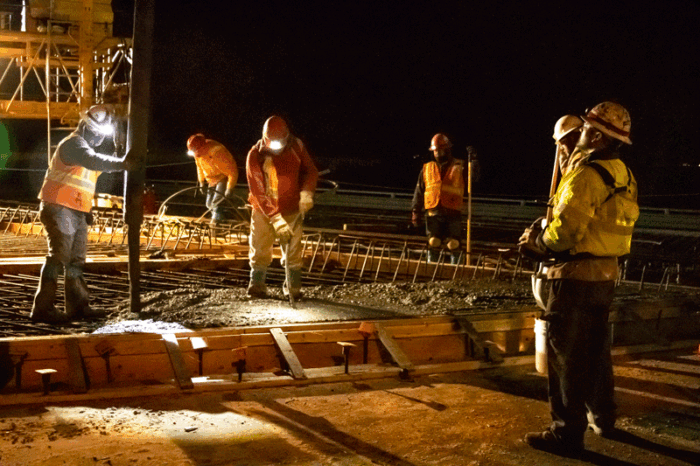
• Reduced visibility
Visibility challenges are the most obvious disadvantage of doing construction work at night. Although crews can improve visibility with high-quality Milwaukee torches or even floodlights, they will never be able to see as well as they can under the sun’s natural light. Artificial lighting also means that dust and sediment kicked up into the air are more visible than they are during the daytime, further compounding visibility challenges.
• Increased fatigue
Working the night shift is more taxing than working during the day, regardless of what industry you work in. As well as increase tiredness, the serious sleep cycle disruption that workers experience also contributes to considerable health risks. This can become a safety issue, as excessive fatigue can increase the risks of accidents occurring on the jobsite.
• Noise complaints
Conducting work during the nighttime can also be significantly more disturbing for nearby residents. Although there will always be some members of the public who become disgruntled with construction works, residents are far more likely to file complaints if their sleep or their children’s sleep is disrupted by a noisy construction site nearby. However, this problem can be mitigated effectively if the crew obtains the proper permits and follow regulations.

• Extra Cost
All good things in life and work come at an extra price. This is just how the world around us is. We talked about many nighttime benefits in the paragraphs above, but as you can see down here there are a few downsides too. During the nighttime, the need for extra safety grows. While working on it, companies need to ensure high visibility which requires extra lighting which increases the on-site bills. Extra safety requires extra supervision, and when you mix all of that with higher utility bills, you get quite a few expenses piled up.
Also, while the night shift can increase the speed at which work is going to be done, it is more expensive in terms of wages. Hour per night costs much more than it does during the day. With everything we said combined, you can see how work at night can be efficient and effective but by no means it’s going to be cheaper.
• Limited Workforce Availability
Last but not least, let’s talk about labor. While people are accustomed to working at night, not everyone wants to do it. Companies that have workers doing daily and night shifts in the world of construction are rare. The reasons are simple. The availability of the workforce is limited. You can’t have enough people working both shifts and that is cost-effective. Many people love to work during the day to have time to spend with their friends and family.
Furthermore, these companies can find themselves lacking skilled workers in addition to having so few of them. All of this combined can lead to lesser quality of work which is not in anyone’s interest in the end.
The bottom line…
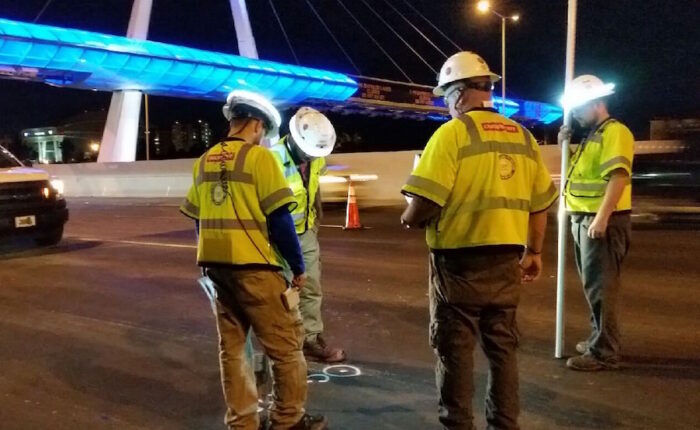
As with any aspect of a construction project, there’s no perfect answer when it comes to deciding whether to carry out work during the day or the night. Each option has its pros and cons. Depending on the details of the project, such as the crew conducting work, location of the site, and type of work being done, working during the nighttime could be beneficial.







